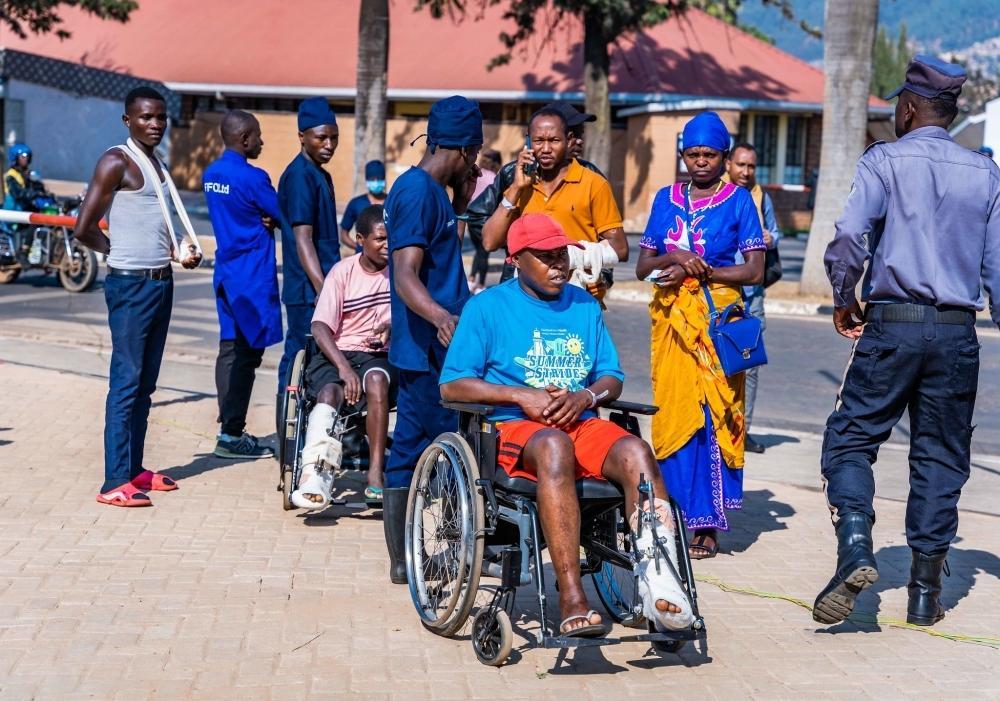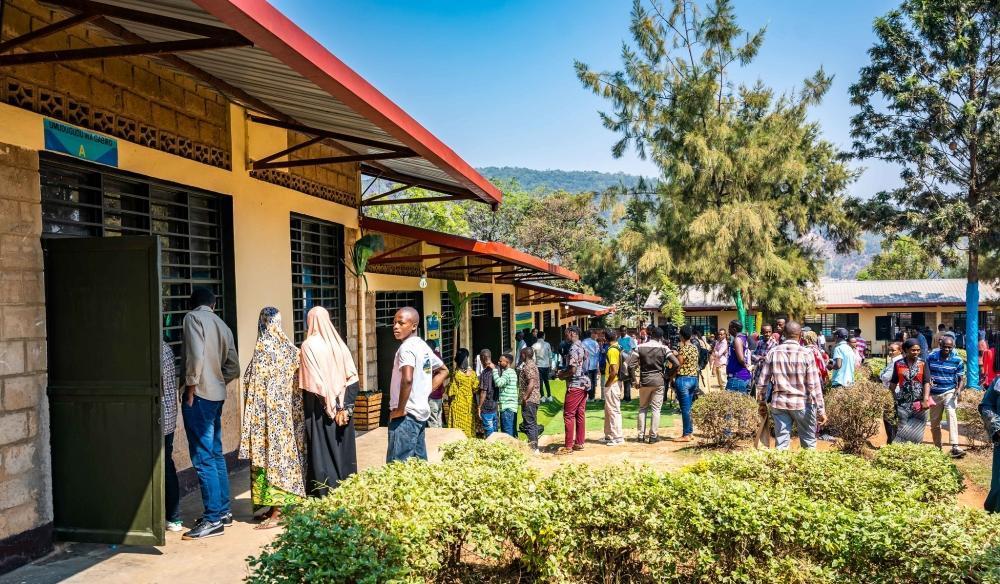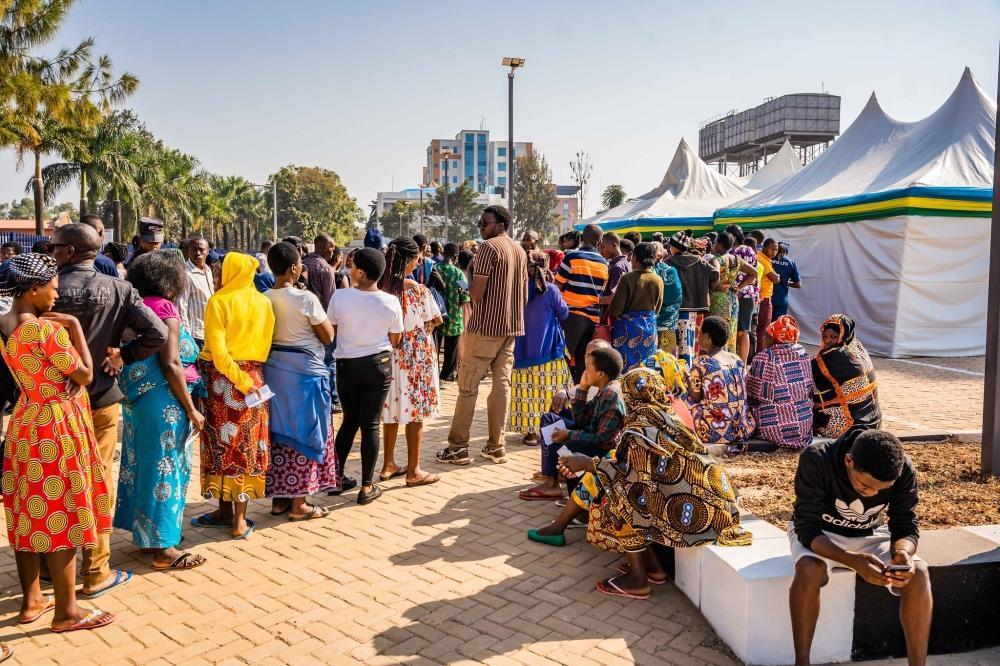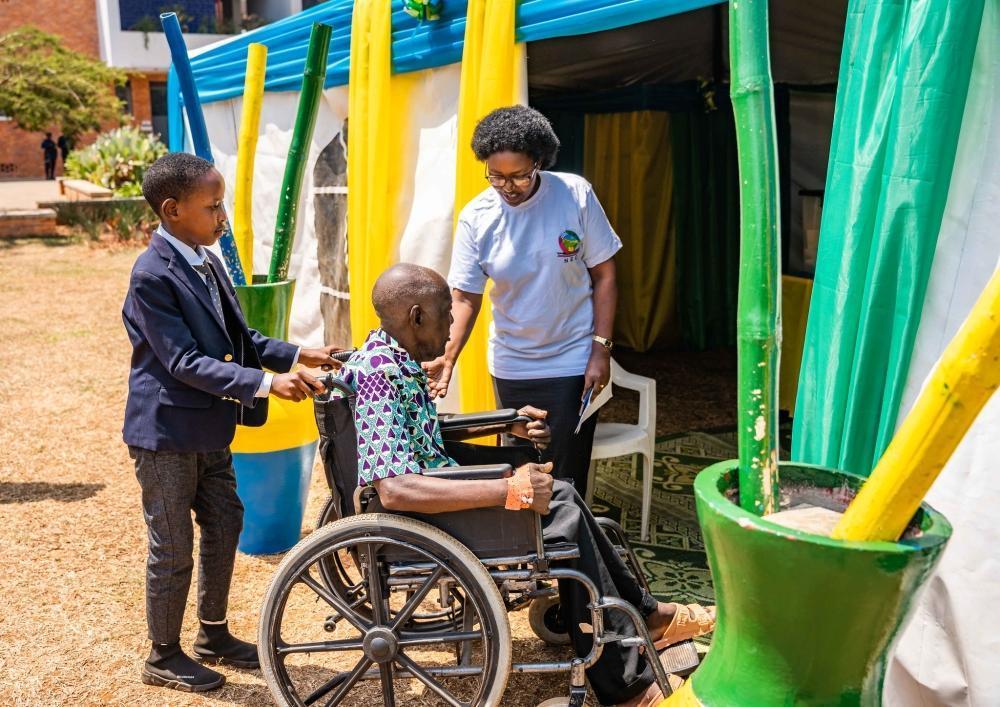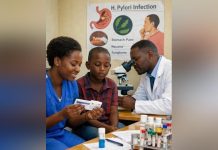Africa-Press – Rwanda. The elections to decide Rwanda’s President and Members of Parliament (MPs) for the next five years began on July 14 and concluded on July 16. Right from the campaign period, the country was buzzing with excitement. The entire campaign season looked a lot like a festival.
As has always been the case, in post-genocide Rwanda, elections in the country are peaceful, a uniqueness that surprises most foreigners.
According to the provisional results announced by the National Electoral Commission (NEC) on July 18, President-elect Paul Kagame secured an astounding 99.18 per cent of the vote. His closest rival, Frank Habineza of Democratic Green Party, managed only 0.50 per cent of the vote, and independent candidate Philippe Mpayimana trailed with 0.32 per cent,
Here is what to know about an election in which more than nine million Rwandans, up to two million of them being first-time voters, cast their votes at 2,591 polling stations.
Here are the things that stood out:
Turnout
First was the show of solidarity and patriotism as reflected by the outstandingly big turnout – home and abroad – of over 95 percent. In Ghana, Benin, Togo, and Côte d’Ivoire, for example, the total number of expected voters was 375, but a total of 387 turned up, implying a 103 percent turnout.
Students at University of Kerala, a state-run public university in Thiruvananthapuram, the state capital of Kerala, India, braved a more than 4,400 kilometer-train (to and fro) journey across India to go and cast their votes in New Delhi, and then head back to their campuses.
‘Rwandans are deeply invested in their country’s future’
The enthusiasm and dedication displayed by voters of all ages, from first-time voters to the elderly, demonstrated a strong national commitment to the democratic process, Abbas Mukama, the spokesperson of the National Consultative Forum of Political Organizations (NFPO), said on July 19.
“This election has shown that Rwandans are deeply invested in their country’s future, working together across generations to ensure a fair and peaceful election,” Mukama said.
Annie Nyiramongi, a 60-year-old who lives in Belgium, travelled to Rwanda to vote in the 2017 polls and she did it again in the just concluded elections. And she will do it again, in future.
“We want to prove to those people who say that Rwandans are forced to attend rallies or vote that whatever they say is not true. We came here on our own, joined Rwandans on this journey, we saw how happy citizens were during campaigns,” she told The New Times.
2. Election fully funded by Rwandans
The budget for the 2024 presidential and parliamentary elections was Rwf9 billion, fully funded by the government of Rwanda, NEC Chairperson Oda Gasinzigwa said before the elections. Previously held separately, the presidential and parliamentary elections were, this time, synchronized so as to, among others, cut costs.
In February, about five months before the polls, asked how much the synchronized election would cost, Gasinzigwa noted that one of the milestones, or achievements, of the country is that since 2017, the government had been funding elections fully. At the time, she noted, NEC was still consulting the Ministry of Finance “because in 2024 we will be having not only presidential and parliamentary elections, but also the Senate and City of Kigali elections.”
Voters queueing during the elections at GS Camp Kigali.
She said: “In 2023-2024 the government provided around Rwf5.3 billion, and in 2024-2025, we have so far received, an initial ceiling of Rwf3.8 billion. It is obvious that the total budget will be less compared to the previous elections. I would say that generally we are not worried about the budget.”
About Rwf3 billion was saved after, among others, the electoral commission trained and deployed 96,898 election volunteers to help make sure the election went smoothly.
3.Polling stations in hospitals
As Rwandans voted in the presidential and parliamentary elections on July 15, patients, medical workers, and caregivers across the country were facilitated to cast their ballots at a polling station set up at different hospitals.
Bosco Twagiramungu, a resident of Kamonyi District, who voted from Nyarugenge District Hospital, in Kigali, where he was hospitalized, said: “I never skip voting and that is why I was wondering how I can exercise my right.
Patients, staff and caregivers at University Teaching Hospital of Kigali (CHUK) are being facilitated to cast their vote at a polling site established opposite to the hospital. Bahizi
“We were told by the hospital management that a polling site was set up near us. This is a commendable initiative that has enabled me to vote for the candidate I think is important. I was admitted to the hospital two weeks ago and I am still hospitalized.”
4. Scaling up use of braille at polling stations
Charles Birekeraho, who is visually impaired, was able to vote without the help of a child as would have been the case if braille ballot papers had not been availed at all polling sites. During the 2017 presidential elections, Birekeraho recalled, there was no braille ballot paper at the station he voted from, and he relied on the help of a child.
In the 2024 general elections, braille ballot papers were scaled up across all polling stations countrywide.
“This is the first time I voted using a braille ballot paper. It is progress that we are all happy with. I was able to effectively cast my vote independently, thanks to the braille ballot paper,” he said.
To assist voters with hearing impairment, NEC also deployed sign language interpreters at all campaign events and polling stations.
5. Emergency rooms at polling stations
Up to 2,433 special emergency rooms for women and girls were set up at all polling sites.
They were all equipped to help women and girls in case of emergency. Besides being areas used by breastfeeding mothers, these rooms were also available to serve and provide first aid for any other person with an emergency before such people were taken, where need be, to hospital.
The Rwanda Civil Society Platform (RCSP) which deployed 290 election observers countrywide for the elections also noted some irregularities but commended the fact that elections were conducted in a safe environment, and polling stations were established in hospitals to facilitate voting for patients, caregivers, medical staff, and other essential service providers, among others.
The National Consultative Forum of Political Organizations (NFPO) spokesperson, Abbas Mukama, on July 19, said that the elections highlighted a growing sense of unity and patriotism among Rwandans.
“The 2024 general elections have not only strengthened Rwanda’s democratic fabric but have also reinforced the nation’s image as a beacon of peace, unity, and progress,” the former lawmaker said, shortly after stressing that with the elections then almost concluded, “Rwanda now returns to its mission of national development.”
NEC will announce the final results of the parliamentary elections not later than July 27.
Betty Nyirahabinshuti, a visually impaired voter, receives assistance to press her ballot paper into the ballot box at the APAPEC Gakiriro polling station in the Gisozi sector. Photo by Shallon Mwiza

For More News And Analysis About Rwanda Follow Africa-Press

